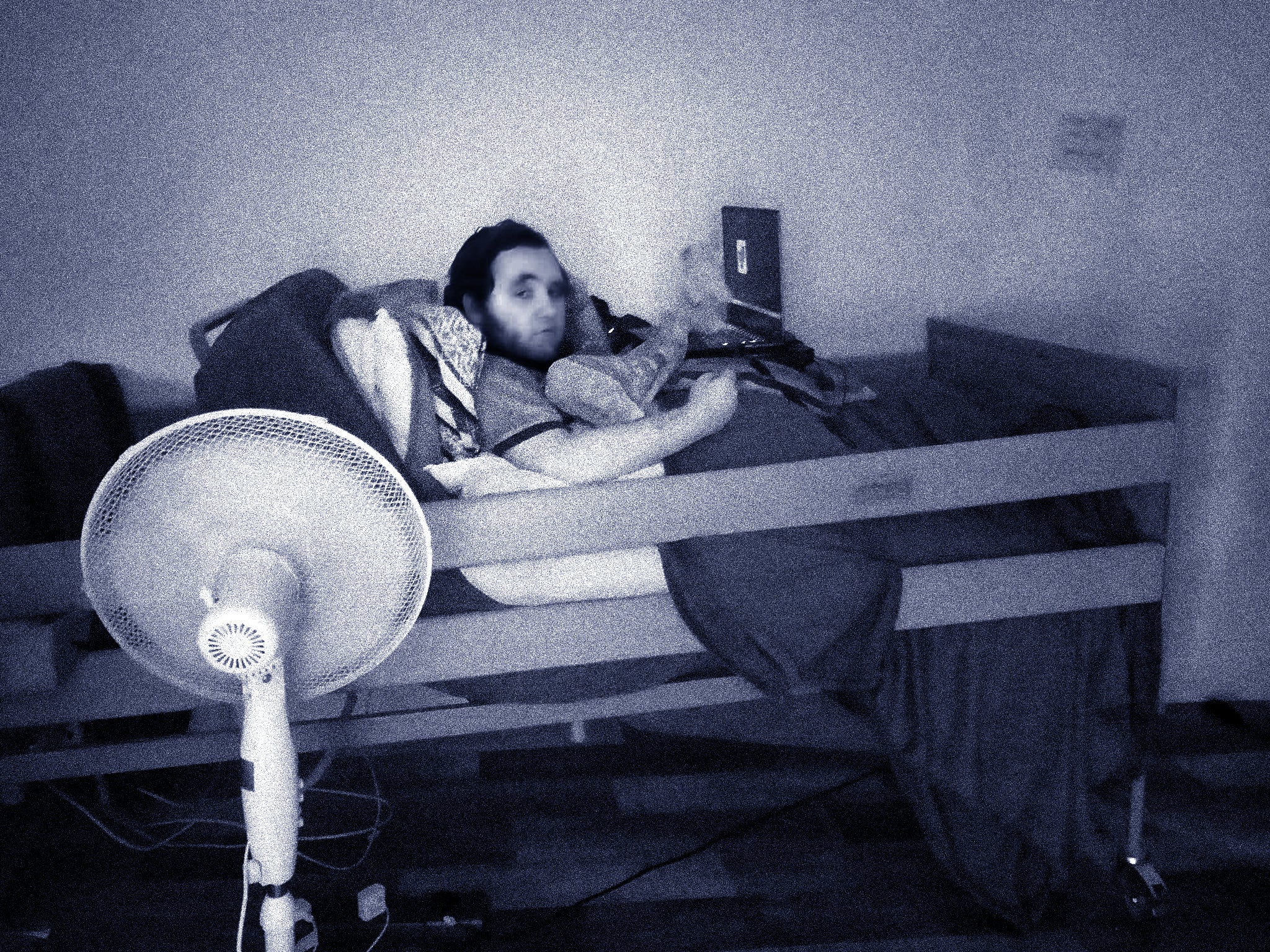The Independent's journalism is supported by our readers. When you purchase through links on our site, we may earn commission.
Scandal of patients with learning disabilities locked in ‘inhumane’ solitary confinement for 20 years
‘Basic needs are simply not met, abuse is rife and people face being totally dehumanised,’ campaigners warn
Your support helps us to tell the story
From reproductive rights to climate change to Big Tech, The Independent is on the ground when the story is developing. Whether it's investigating the financials of Elon Musk's pro-Trump PAC or producing our latest documentary, 'The A Word', which shines a light on the American women fighting for reproductive rights, we know how important it is to parse out the facts from the messaging.
At such a critical moment in US history, we need reporters on the ground. Your donation allows us to keep sending journalists to speak to both sides of the story.
The Independent is trusted by Americans across the entire political spectrum. And unlike many other quality news outlets, we choose not to lock Americans out of our reporting and analysis with paywalls. We believe quality journalism should be available to everyone, paid for by those who can afford it.
Your support makes all the difference.The government has been condemned for failing to end the “inhumane” treatment of people with learning disabilities and autism who have been locked in solitary confinement for up to 20 years.
In a damning report following a four-year inquiry, House of Lords peer Sheila Hollins found that the failure to act has meant that patients are being “warehoused” in hospital wards unsuitable for their needs, despite repeated government pledges to stop the practice.
These patients are held in rooms in isolation, some for decades, because there is nowhere to house them in the community. Many are being treated unnecessarily with antipsychotic medication. The Independent has discovered that there are 2,005 people in the UK with learning disabilities or autism – 205 of them children – who are being forced to stay in inappropriate care because there are no community care spaces available. Half of them have been detained for more than two years.
The government first promised 10 years ago that it would end the practice of admitting people with learning disabilities and autism to hospitals without there being a medical need to do so. It later committed to ending the practice in its long-delayed Mental Health Bill. But on Tuesday, the bill was once again omitted from the King’s Speech, prompting criticism from some of the government’s own MPs, who say that the most vulnerable patients are being failed.
In her scathing report, Baroness Hollins said: “My heart breaks that after such a long period of work, the care and outcomes for people with a learning disability and autistic people are still so poor, and the very initiatives which are improving their situations are yet to secure the essential funding required to continue this important work.
“The humanity of people in solitary confinement gets forgotten. Their life story remains unknown. The use of solitary confinement affects the person’s identity to such an extent it causes what could be described as a “social death”.
The cross-bench peer’s warning to ministers comes as an investigation by The Independent uncovered the story of Nicholas Thornton, who has spent 12 years locked up in inappropriate institutions across the country against his will.

His story comes two years after The Independent revealed a litany of failings in mental health care following an NHS review into the life and death of Clive Treacy, who had learning disabilities and died in 2017 after 10 years of incarceration.
In 2019, Baroness Hollins was asked to chair a team of experts looking into the care of all of those with learning disabilities and autism in hospitals who had been placed in long-term segregation.
Back then, there were 115 in isolation – a figure that remains unchanged four years later, with more than half of those locked up in 2019 still stuck in “inhumane” conditions.
In her report, Baroness Hollins revealed the story of a man who was forced to live in hospital for 20 years, and for much of that time in solitary confinement.

She also found that patients were being harmed because they were being medicated with antipsychotic drugs unnecessarily, and that some had been inappropriately restrained.
Many patients who were already suffering from trauma were further traumatised by their time in hospital, because the units they were kept in could not meet their complex needs.
Baroness Hollins demanded that the use of segregation be “severely curtailed for people with a learning disability and/or autistic people”.
She made several recommendations and called for the government to take action, including ensuring that:
- Any use of solitary confinement for people with a learning disability or autism should automatically trigger an investigation
- Staff working with patients with complex needs should deliver therapeutic and human-rights-based care
- Anyone admitted to hospital should have a plan in place to return them to their home with support as soon as possible
- Before admitting a person to hospital, a “contract” should be drawn up setting out how that person will be discharged
- Alternatives to hospital accommodation must be made available in order to avoid unnecessary detention
The report also calls for the government, NHS England and watchdog the Care Quality Commission to commit to funding and delivering interventions to reduce the use of solitary confinement and move people out of hospital as soon as possible.

Campaign group Rightful Lives, whose members submitted evidence to Baroness Hollins’s review, said: “We have heard some heart-rending stories and been appalled at the ongoing human rights abuses suffered by autistic people and people with learning disabilities.
“Basic needs are simply not met, abuse is rife and people face being totally dehumanised by their experiences. And as fast as people leave solitary confinement, other people take their place.”
The group’s spokesperson continued: “It seems that this government would rather throw money at delaying tactics than actually take any real action. Our concern remains with all the people who remain in solitary confinement because this government does not care enough to make the changes needed. Solitary confinement is toxic, inhuman and degrading and frequently in breach of international and domestic law and guidance.”
In a response to the report, mental health minister Maria Caulfield thanked Baroness Hollins for her work and said: “I am absolutely clear that we must significantly reduce the use of long-term segregation and if used, it should only ever be in a way that respects human rights, where the environment is of the standard set out in the Mental Health Act 1983: Code of Practice, and is no more restrictive than is necessary for people’s safety.”
However, the minister did not commit to implementing any specific recommendations immediately, and said that further work would need to be done first.

Join our commenting forum
Join thought-provoking conversations, follow other Independent readers and see their replies
Comments